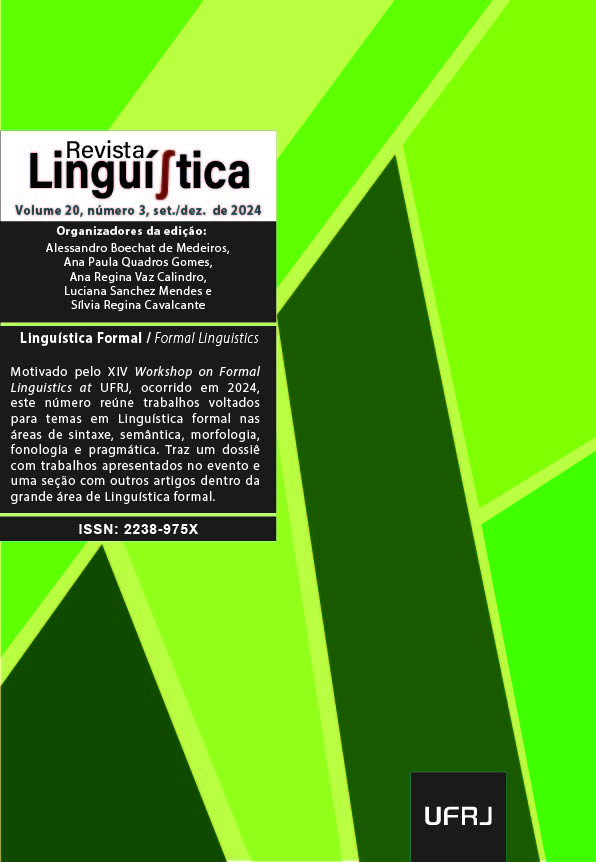A produção do contraste de duração por aprendizes brasileiros de inglês como L2: um modelo de Máxima Entropia para ponderação de pistas
DOI:
https://doi.org/10.31513/linguistica.2024.v20n3a65367Abstract
This study investigates how Brazilian learners of English as a second language produce the length contrast between long-tense vowels ([i, u]) and short-lax vowels ([ɪ, ʊ]), focusing on cue-weighting strategies. Given that Brazilian Portuguese lacks a phonemic vowel length contrast, a question that arises is how learners process this feature in English. The study evaluates the influence of acoustic cues such as vowel duration, F1, and F2 in the learners’ production across different proficiency levels. Using Pillai scores to assess category separation and a Maximum Entropy (MaxEnt) model to estimate cue weights, our analysis reveals how these cues are integrated into learners’ phonological systems. The results show that lower proficiency learners heavily rely on vowel duration, while higher proficiency learners incorporate spectral cues (F1, F2) more consistently, especially for front vowel contrasts ([i, ɪ]). For back vowels ([u, ʊ]), however, even advanced learners show limited cue integration, as indicated by significant overlap in their acoustic space. Pillai scores demonstrate greater category separation for advanced learners, particularly in front vowels, but inconsistencies remain in back vowel distinctions. The MaxEnt analysis highlights that duration receives higher weights for back vowel contrasts, while F1 and F2 play more significant roles for front vowel contrasts at higher proficiency levels. These findings suggest that while learners progressively adjust their cue-weighting strategies as proficiency levels increase, L1 transfer effects remain prominent, particularly in the reliance on vowel duration, thus contributing to our understanding of how L2 phonological contrasts are developed.
Keywords: Cue Weighting. Length Contrast. Maximum Entropy Model. L2 Phonology Acquisition. Vowel.
Downloads
Published
Issue
Section
License
Copyright (c) 2025 Revista Linguí∫tica

This work is licensed under a Creative Commons Attribution-NonCommercial 4.0 International License.
Authors who publish in the Revista Linguí∫tica agree with the following terms:
The authors maintain their rights, ceding to the journal the right to first publication of the article, simultaneously submitted to a Creative Commons license permitting the sharing with third-parties of published content as long as it mentions the author and its first publication in the Revista Linguí∫tica.
Authors may enter into additional agreements for the non-exclusive distribution of their published work (for example, posting in online institutional or non-profit repositories, or book chapters) so long as they acknowledge its initial publication in the Revista Linguí∫tica.

The journal Revista Linguí∫tica is published by the Post-Graduate program in Linguistics of UFRJ and employs a Creative Commons - Attribution-NonCommercial 4.0 International (CC-BY-NC).









